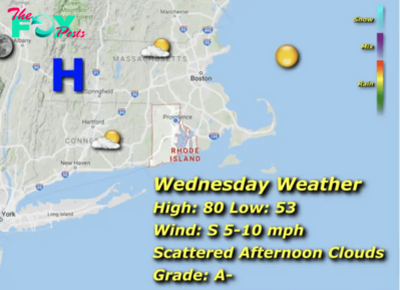Lifestyle
Strengthening the safety net for seniors living in poverty – Herb Weiss
by Herb Weiss, contributing writer for senior issues
A recently released U.S. Census Bureau report should send a message to Congress and spur the efforts of aging advocates to protect older Americans from financial hardship and poverty. Some consider the “golden years” to be age 60, or 65, and over. But it’s not so golden for millions of retirees.
According to a recently released U.S. Census Bureau’s report, “Profile of Older Adults by Poverty Status: 2021,” 8.3% of the nation’s population age 65 and over are living in poverty.
The Census Report, released on June 25, 2024, uses data from the Survey of Income and Program Participation (SIPP), to draw a profile of the 4.7 million older adults who lived in poverty in 2021. This longitudinal survey provides comprehensive information on the dynamics of income, employment, household composition and government program participation.
Poverty in your later years
Here are a few data nuggets from the latest Census Report’s findings…
According to the report, two-thirds of older adults living in poverty in 2021 were women. Limited time in the workforce, raising children or serving as a caregiver, have decreased Social Security benefits, leading to income insecurity in their later years. Older adults living below the poverty line were more likely than those “non-poor” to have never married, says the report, noting that this limits the chance of these individuals to accumulate financial resources with a spouse or to obtain financial incentives (such as tax benefits) associated with being married.
And yes, living alone can be hazardous to your pocketbook, notes the Census report. In 2021, most older adults in poverty (62.9%) lived alone, compared to only 26.3% of those not in poverty.
In addition, among older adults in poverty who lived with at least one other person, 65.5% lived with a spouse, 29.9% lived with a child and 11.2 percent lived with a grandchild, noted the report’s findings.
A snapshot of poverty in Rhode Island
According to Maureen Maigret, Policy Advisor for the Senior Agenda Coalition of Rhode Island,” the Census Bureau released a “significant and must-read report.”
“The data shows that almost five million older adults across the nation are living in poverty, and details how gender and social characteristics contribute to poverty status and wealth,” says Maigret. “Two-thirds of the nation’s older adults living in poverty are women, which is like the poverty profile of older adults in Rhode Island, as are the higher rates of poverty for older persons of color.
Maigret noted that a comprehensive 2014 report on RI Older Women she researched for The Women’s Fund of RI documented the high poverty rate of older women in the state – 9.7% for men and 11.3% for women. The Women’s Fund report also found about 20% of older RI adults living in poverty were more likely to be Hispanic or non-Hispanic Black.
“Unfortunately, things have not improved,” she says, noting that the poverty rate for older Rhode Islanders has increased to 12.3% (US Census ACS 2022 estimates) which is higher than the 10.9% national poverty rate for older adults.
“Providing data on the poverty status of older adults is important for our state policymakers. It is also critical for them to understand the notable gender differences as women outnumber men in the state’s older population (56% vs 44%), have greater healthcare expenses, are more likely to live alone and need long term supports,” states the former Director of the state’s Department of Elderly Affairs (DEA), now referred to as the Office of Healthy Aging. Older RI women also have lower Social Security benefits than men (about $5,000 less) and 37% less pension benefits, she says.
Maigret notes that most older Rhode Islanders are not wealthy with many falling into what is termed the “forgotten middle.” A specifically, term used to describe those individuals with income not low-income enough to be on Medicaid but not enough to meet basic needs–estimated at $30,000/year for a single renter in good health (Elder Index).
Twenty-seven percent of our older households have income below $25,000 (US Census) which is not sufficient to meet basic needs. This is why we must both improve some of the programs that can help them financially and better inform them of available benefits, she says.
Tackling poverty in the Ocean State
According to Susan Sweet, founder of the Rhode Island Minority Elder Task Force (RIMETF) ([email protected]), a 501 © (3) nonprofit, established in 1992 after a survey found that elders from minority groups were not being serviced by aging network providers, “The survey revealed that Senior Centers, Adult Day Centers, and other state and local programs had almost no staff who were able to communicate with clients who had limited or no English language skills, and paid no attention to cultural differences in different populations,” she noted.
“While there has definitely been some improvement, most older Rhode Islanders of different cultures and/or languages must seek assistance from the few programs that are specifically directed to them,” says Sweet, a former state associate director of DEA, and advocate for seniors facing hardships and low-income difficulties.
“But they are not the majority of those who barely survive because of a lack of funds and support. Coming from all backgrounds, many poor elders are struggling to meet basic needs such as shelter, food, medicine, medical care, utilities and other necessities”, says Sweet.
“Older adult needs appear to be much worse than they were in the early 2000s. INFLation, Covid, lack of adequate housing options, as well as difficulty in accessing existing assistance programs are pushing these individuals to an existence that threatens their Health and their life,” warns Sweet.
State programs that exist for the purpose of helping poor, older adults often have long application periods and stringent rules that create very little ability to respond to emergency situations,” according to Sweet.
Sweet says that RIMETF’s most extensive work is in direct assistance to poor elders for basic needs. “We provide mini-grants , generally in the range of $200 – $400, to low-income elders in dire circumstances by paying directly to providers of goods and services such as rental entities, utilities, fuel companies and gift cards for items such as food, clothing, medicine, and household goods. “Our members also assist to get people on payment plans, programs, services, and better situations that may prevent future emergencies and enable longer-term solutions,” she says.
RIMETF has no paid staff and its Board membership consists of a diverse group of health and social work representatives, program administrators, community members, Senior Center and Community Action staff members, housing specialists, and advocates from other aging programs. The older adults who need help are identified by the group’s membership and demographic information and records are kept by the organization.
The nonprofit group is funded by private foundations such as Nursing Placement Foundation, Rhode Island Foundation, Tufts, Harriet Boucher Foundation, Dexter Fund as well as municipalities including the Cities of Providence, East Providence and Pawtucket.
Both Maigret and Sweet call for more to be done by the Rhode Island lawmakers next session to strengthen the safety net for struggling older Rhode Islander’s to protect them from poverty.
“Yes, absolutely more work needs to be done,” says Maigret. ”Data from the national profile and corresponding state data provide strong evidence of the need to continue advocacy to fight for policies to ensure Rhode Islanders enjoy economic security in their older years.”
“Policies are a necessary part of the work, but oversight and quality control of state and private programs and services is vital to ensure that actual help is available in a timely manner; currently, oversight is lacking,” says Sweet, calling for state programs and policies to be better monitored and evaluated by those who deal with poor older adults and know the hardships suffered by them.
“The reality of increasing poverty among elders requires a grass roots understanding of the lack of support actually available to meet their needs,” says Sweet.
To get a copy of the Census Bureau’s report, “Profile of Older Adults by Poverty Status: 2021,” go to https://www2.census.gov/library/publications/2024/demo/p70-193.pdf
To read “Older Women in Rhode Island: A Portrait, Woman’s Fund Rhode Island 2014,” go to https://wfri.org/assets/older-woman-rhode-island.pdf
___
To read more articles by Herb Weiss, go to: https://rinewstoday.com/herb-weiss/

Herb Weiss, LRI -12, is a Pawtucket-based writer who has covered aging, health care and medical issues for over 43 years. To purchase his books, Taking Charge: Collected Stories on Aging Boldly and a sequel, compiling weekly published articles, go to herbweiss.com.
-

 Lifestyle3h ago
Lifestyle3h agoLiam Paynes funeral: One Direction reunites in tragic scenes, new and old lovers bid him farewell in heartbreak see more.cau
-

 Lifestyle3h ago
Lifestyle3h ago“David Beckham Sparks Controversy Explaining Why He Kisses His 11-Year-Old Daughter on the Lips”.ngocchau
-

 Lifestyle5h ago
Lifestyle5h agoRoger Waters sends open message to Bisan Owda | The Express Tribune
-

 Lifestyle5h ago
Lifestyle5h agoWakhri' secures award at Indian film fest | The Express Tribune
-

 Lifestyle9h ago
Lifestyle9h agoMrBeast plans to collaborate with Lionel Messi to prevent Cristiano Ronaldo from breaking his YouTube record.Linh
-

 Lifestyle9h ago
Lifestyle9h agoCristiano Ronaldo’s YouTube campaign questioned after breaking MrBeast’s records: “Is this the content people want to watch?”.Linh
-

 Lifestyle10h ago
Lifestyle10h agoRust' finally set to premiere | The Express Tribune
-

 Lifestyle10h ago
Lifestyle10h agoForget heaps of concealer, this smoky eye embraces melanin | The Express Tribune


























